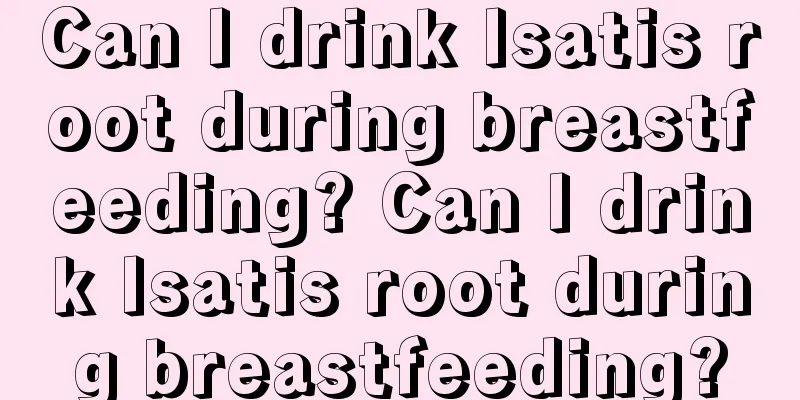What kind of milk powder should babies who are allergic to milk powder eat? Will babies fed with milk powder have poor resistance?

|
Some babies may have to be fed artificially due to insufficient mother's milk, but there are many problems and misunderstandings. Some babies are allergic to milk protein in milk powder. How should mothers choose milk powder for their babies? What kind of milk powder should babies with milk powder allergy eat?If your baby is allergic to milk protein, you can only choose moderately hydrolyzed, deeply hydrolyzed milk powder or amino acid milk powder. The reason why hydrolyzed milk powder is used to prevent and treat milk protein allergy is that this type of milk powder uses special technology to hydrolyze the large molecular whole protein in milk into small molecular proteins of medium and short peptides, thereby reducing the allergenicity of milk protein. Amino acid milk powder is composed of free radicals, which does not contain any food sources that may cause allergies. It is generally used for babies who are severely allergic to milk protein. It should be noted that there are only 8 hydrolyzed milk powders registered with the CFDA in my country, namely amino acid milk powder Newcate, deep hydrolyzed milk powder Aiershu and Peptideminshu, moderately hydrolyzed milk powder Abbott Pro-Care, Super Energizer, Mead Johnson Pro-Care, Jingzhi Care, and Ubominjia. Many products on the market that claim to be suitable for babies with allergies appear in the form of solid beverages. Do not give them to babies. Long-term use as the main food source for babies will lead to malnutrition. What are the anti-allergic milk powders?As the name suggests, anti-allergic milk powder is a kind of milk powder that can effectively prevent or avoid milk protein allergies by adding a certain anti-allergic formula. Currently, many infant milk powder brands on the market have launched anti-allergic milk powders specially designed for babies with allergic constitutions. The following are common ones. 1. Amino acid milk powder Representative products: Mead Johnson Enfamil Infant Formula Milk Powder, Mead Johnson Enfamil Infant Formula Milk Powder 2. Highly hydrolyzed formula milk powder Highly hydrolyzed formula milk powder refers to the conversion of large molecular milk protein into short peptides and amino acid structures, which are non-allergenic. After protein hydrolysis, the molecular weight of the protein is less than 1500, and it is generally used as a therapeutic diet to reduce the baby's allergy to milk protein. This anti-allergic milk powder can be used for the treatment and prevention of allergies to avoid milk protein allergies. However, highly hydrolyzed formula milk powder has a bitter taste, which is less acceptable to children, and its high price is also one of its disadvantages. 3. Partially hydrolyzed milk powder After protein hydrolysis, its protein molecular weight is greater than 3500, and it is mainly suitable for preventive diets for cow's milk protein allergy and other food-induced allergies. Generally speaking, partially hydrolyzed formula milk powder is cheaper than highly hydrolyzed formula milk powder, and tastes better and is more easily accepted by children, but the cow's milk protein in this anti-allergic milk powder still has residual antigenicity, so it is still not suitable for treating cow's milk protein allergy. Will babies fed with milk powder have poor immunity?Although breastfeeding is a very good choice, if there are special circumstances, you can only choose formula feeding. Some parents will say that such babies have poor resistance, but this is not the case. Resistance is related to many factors. Mothers need to do daily care to avoid the baby's resistance from decreasing. Will babies who are fed with formula have constipation?Yes. Regardless of the feeding method, babies will have constipation. Parents just need to make sure their babies drink plenty of water and keep them warm. As long as the baby does not have any abnormal discomfort, there is no need to worry. If the indoor temperature of the baby is high and the air is dry, it may also cause the baby to get angry and have constipation. Parents should pay attention to arranging the baby's living environment reasonably, and the temperature and humidity should be appropriate. |
<<: Is Johnson's Baby Cream safe? How is Johnson's Baby Cream?
>>: The child coughed and vomited. What is the reason for the child's cough and vomiting?
Recommend
There is a bad smell in the baby's ears. What's wrong? Is it caused by ear inflammation?
The ears are important organs that need our good ...
When mixing milk powder, should you add water first or milk powder first? Correct steps for mixing milk powder
Milk powder is a very popular and beloved drink. ...
When will the fetus move? What should the frequency of fetal movement be?
Everyone must have heard of fetal movement in lif...
The role of baby shaping pillows. Are baby shaping pillows useful for preventing head tilt?
Baby shaping pillows are a very common product on...
How to check adenoids hypertrophy in children? What causes adenoids hypertrophy?
Children's physical condition is still relati...
What kind of exercise can you do before a normal birth to help you have a quick birth? What can you eat before a normal birth to help you have a quick birth?
During pregnancy, expectant mothers should start ...
What should babies wear in summer? What should babies wear in summer?
What should babies wear in summer? This question ...
How to give your baby a good name? Recommendations for novel and refined names
How to choose a good name for your baby 1. Use the...
What toothbrush is good for confinement? What toothbrush is good for confinement?
Many mothers are very distressed when they are in...
What should I do if my child is allergic? Children will not be allergic to these foods when they grow up.
Children have delicate skin and weak resistance, ...
Does Kao toothpaste have a seal? Does Kao toothpaste have a packaging box?
Different toothpastes have different seals, some ...
Is it necessary to buy a pregnancy pillow? Which shape of pregnancy pillow is the most practical?
Most pregnant women know that it is very inconven...
How to use ovulation test strips_How to use ovulation test strips
When preparing for pregnancy, you need to choose ...
Frontal photo of Xiaohua sister Recent photo of Xiaohua sister
The editor has seen a lot of sad news during this...
How to train your baby to fall asleep on his own? How to train your baby to sleep through the night?
The baby's sleep problems will determine the ...









